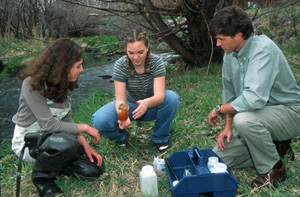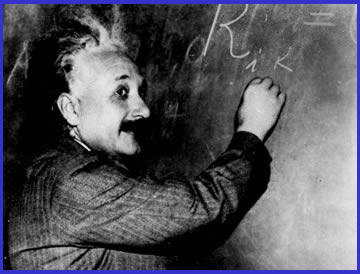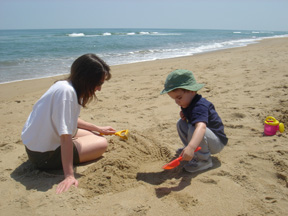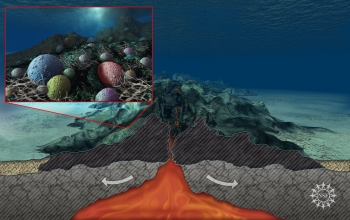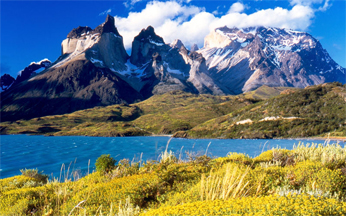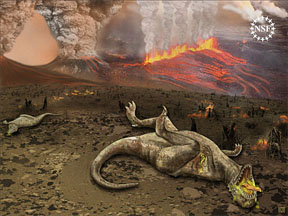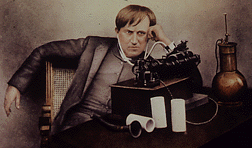Click on image for full size
Courtesy of UCAR
The Scientific Process
How do scientists actually come up with explanations for the things that happen around us? The first step in this process happens when a scientist observes something happening that is both interesting and unexplained. It might be a new light in the sky or maybe a strange reaction when two chemicals are added together in a beaker. When that happens, a scientist will usually begin to think about how the new observation might be explained. Scientists are generally pretty curious!This is when the steps of the scientific method begin. The scientist will begin to put together a hypothesis or guess that might explain the unusual event he/she has just observed. Then based on that explanation he/she will begin to make predictions. For instance, the hypothesis that he/she has come up with might predict that the observation might happen again at a certain time, or under certain conditions. The final step in the scientific method is then to test the predictions, and see if the hypothesis is supported or proven wrong. If the hypothesis is proven wrong, he/she will start the process again, and try to come up with a new guess that explains all of the observations.
Once the scientist has a hypothesis that explains all the observations, and makes predictions that can be proven true, he or she will tell other scientists about the new discovery. In modern science, this is done by presenting his/her work during a talk or in an article describing the discovery in a scientific journal. A scientific journal is like a magazine, read by other scientists. See Science for an example of a modern scientific journal.
The sharing of data with other scientists is called peer review. Peers are other scientists who do similar research, and understand all the research that the first scientist did. Under the peer review system, a discovery isn't really accepted until the scientists' peers agree that his/her work makes sense, and that his/her explanation of the observed data is probably right. In some ways this is the foundation of scientific research.
It's important to note that agreement on a particular hypothesis sometimes takes a long time--years, or even decades. Evolution, the Big Bang, and climate change are all things that were first proposed as hypotheses long ago. Now considered theories, they are all still being explored and debated by scientists today.
Now it's not just scientists that participate in the scientific process - students do too! When you do a science experiment in class, or in a science fair project, you are taking part in the scientific process too!


